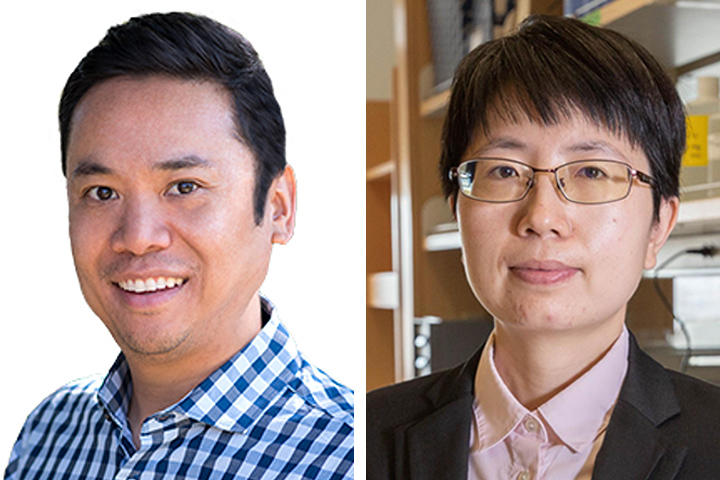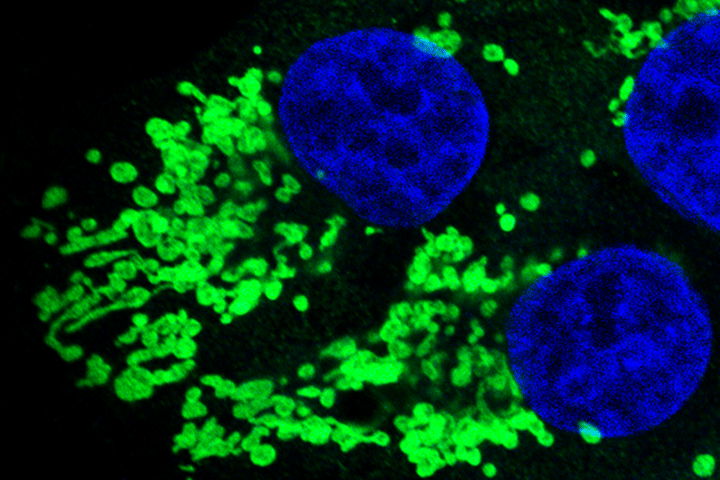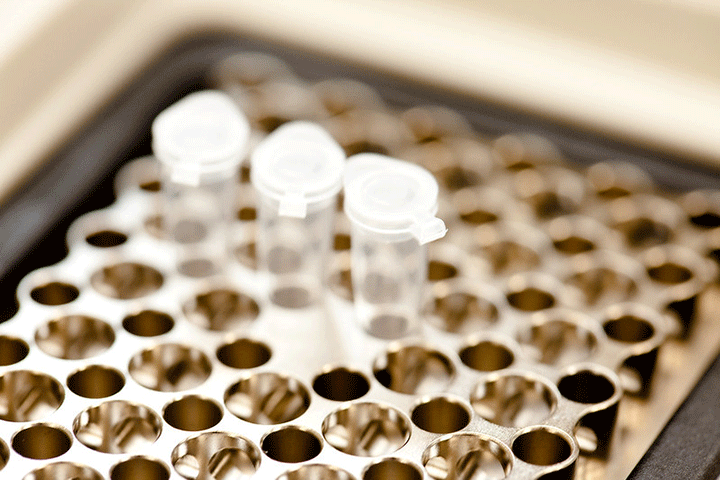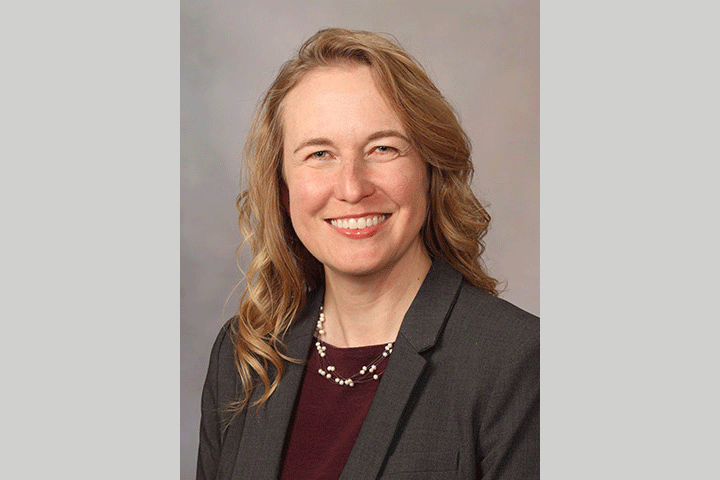Lustgarten–AACR Name Career Development Award Winners

Edwin Manuel, Ph.D., admits he thought grade school science class was kind of a drag.
He’d much rather have been out skateboarding, playing video games, or hanging out with his friends. Pingping Hou, Ph.D., thought grade school science was kind of fun. After all, at that point it really wasn’t much more than memorization. And memorization, she says, was actually pretty easy.
Thanks to some really good teachers, mentors, and a natural inquisitiveness, both Manuel and Hou eventually came to the same conclusion: Science isn’t a drag, nor is it really easy. Rather, science is the way to answer some very fundamental questions, including about the disease process.
Today, both Manuel and Hou run their own cancer research labs and are trying to find those answers so that better treatments for pancreatic cancer can be developed. Due to that commitment to scientific inquiry, they were just named the 2022 recipients of the Lustgarten Foundation–AACR (American Association for Cancer Research) Career Development Awards for Pancreatic Cancer Research. The awards are named in honor of former Supreme Court Justice Ruth Bader Ginsburg and long-serving congressman and civil rights icon John Robert Lewis, both of whom died of pancreatic cancer.
Drs. Hou and Manuel each received three-year, $300,000 grants to fund research furthering the understanding of pancreatic cancer. The Lustgarten Foundation has committed up to $1.8 million to the program over the next two years. The awards are administered by the AACR.
Currently, Hou is a researcher in the Clinical Investigations and Precision Therapeutics Research Program at the Rutgers Cancer Institute, New Brunswick, New Jersey, and an Assistant Professor in the Department of Microbiology, Biochemistry & Molecular Genetics at Rutgers New Jersey Medical School. The Career Development grant will fund her work examining an immune cell population called tumor-associated macrophages (TAMs) that have been shown to cause resistance in a therapy targeting KRAS, a key driver of pancreatic cancer. Her project is titled “Anti-KRAS Therapy Resistance and Pancreatic Tumor Immune Microenvironment.”
Manuel is an Assistant Professor in the Department of Immuno-Oncology at the Beckman Research Institute of City of Hope, Duarte, California, a cancer research and treatment organization. Dr. Manuel and his team are focused on developing novel therapies to suppress nutrient uptake by cancer cells, an important process that drives progression and resistance in pancreatic tumors. His project is titled “Targeting Macropinocytosis as a Novel Avenue for Pancreatic Cancer Therapy.”
Targeting KRAS-Inhibitor Resistance
Like many cancer-driving proteins, KRAS is a formidable foe. When KRAS is a healthy protein, it promotes the growth, division, and survival of cells that keep our bodies functioning. But when it mutates, it morphs into one of the most common causes of cancer cell growth. More than 90 percent of pancreatic cancers have KRAS mutations.
The key to keeping KRAS in line is a switch that flips it between active and inactive states. Under normal conditions, this switch turns KRAS on and off at the appropriate times, supporting healthy cell function. However, certain mutations prolong the protein’s active state, driving the uncontrolled growth that characterizes cancer.
For years, KRAS was considered undruggable. Its round, smooth shape, with few grooves or crevices, left little for a targeted drug to latch on to. Today, however, scientists are looking at how particular KRAS gene mutations cause cancer-driving changes in the corresponding protein. One of these changes, known as G12C, was the first mutation to have a targeted drug approved by the FDA. And today, there is ongoing significant research into other agents to target G12C, as well as a more common mutation dubbed G12D, with KRAS inhibitors. Early trials look promising.
But no matter what targets them, tumors eventually become resistant to drugs. And that’s what Hou hopes to change through her research. “A tumor recurring and a drug no longer working is a very common problem, and it will become a key problem for KRAS inhibition in the near future,” she says. “And this is a fundamental specific problem that needs an answer.”
Breaching the Stroma and Bacteria-Based Therapies
Why are pancreatic tumors so resistant to treatment? One reason is the so-called stroma, a seemingly impenetrable dense barrier of tissue surrounding tumor cells. The stroma is tough to breach, actually tougher than similar tissue surrounding other types of cancerous tumors. Therefore, it’s very difficult for therapeutic agents to reach a pancreatic tumor, and cancer cell growth goes unchecked. Stromal tissue also contains substances that aid in tumor survival and growth.
In his lab at City of Hope, Manuel and his colleagues are researching the feasibility of using stroma-degrading bacteria that home in on pancreatic tumors and breach the wall of stroma so that therapeutic agents can enter and do their job. The team has conducted preclinical studies and found that the approach significantly improves drug delivery and effectiveness of various anticancer therapies.
Interestingly, their bacterium of choice is a modified strain of Salmonella Typhimurium, which has been shown to be clinically safe and preferentially accumulates in solid tumors. In addition to targeting the stroma, they have engineered the bacterium to carry a piece of DNA that targets a specific molecule that hides cancerous cells from the immune system. When combined with stromal degradation, the modified bacterium has been shown to shrink tumors in aggressive models of pancreatic cancer.
“Current therapy, especially for pancreatic cancer, acts on both healthy and malignant tissue, making it incredibly toxic and ultimately ineffective,” explains Manuel. “The bacteria that we’ve engineered can specifically eliminate key components within the tumor that contribute to resistance, survival, and growth.”
Manuel says it’s also a one-two punch because the cancer-killing agents are far safer and will only act within the tumor tissue and nowhere else. “Targeted treatments have been effective in other cancer types, but not so much in pancreatic cancer,” Manuel adds. “We need to find ways to change that. Pancreatic cancer is a terrible disease, and patients need better treatments.”
A Look to the Future
Both Hou and Manuel say they are honored to be awarded these grants since it speaks to the nature of their work, but also because the grants recognize the need for more diversity. The award named for Justice Ginsburg supports the career advancement of an early-career female pancreatic cancer researcher, while the award named for Congressman Lewis supports the career advancement of an early-career pancreatic cancer researcher from an underrepresented minority group.
Hou believes women are making strides in the sciences, and she encourages anyone who may be interested in pursuing a career in some aspect of science to simply go for it. “Sometimes I think people forget that science can be more than a challenge. It can be fun, too,” she says. “Science is for everyone, especially if you like solving problems and like exploring the nature of how things work.”
Another good reason to pursue science: You can’t be replaced by a robot. “Scientists will use artificial intelligence to help in certain areas, but a robot is never going to take over the job of a scientist,” Hou states. “You need imagination, and humans are the ones with imagination, not the computer.”
Manuel feels the same way, and he believes that part of his responsibility to future scientists is to be an excellent teacher and mentor. “I was lucky, since I had great teachers and mentors who helped me get to where I am today,” says Manuel, who is now part of a group talking about science to elementary school students. “I was one of those students that really couldn’t comprehend what science was about when I was young, but that all changed with incredible teachers and then a world of possibility just opened up for me,” explains Manuel. Everyone, regardless of gender, race, or ethnicity “should have the same opportunity,” he says.






